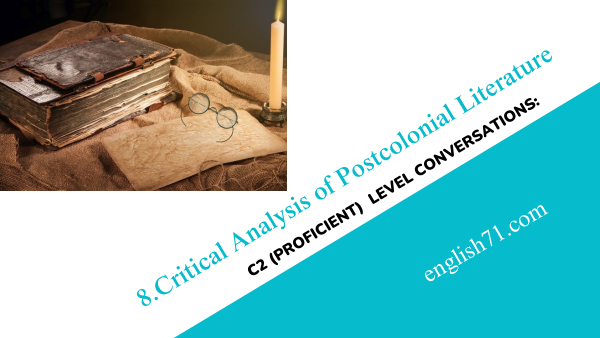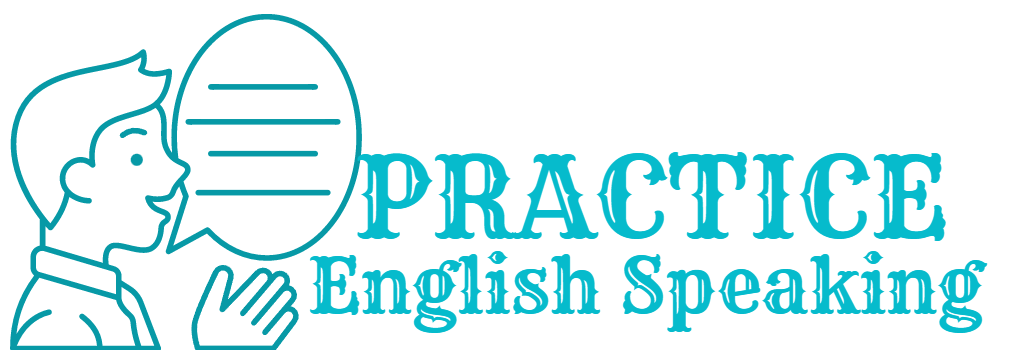C2 (Proficient) level Conversations: (8) Critical Analysis of Postcolonial Literature

Chris: Hi Emma, I’m excited to dive into our discussion about critical analysis of postcolonial literature. Where should we start?
Emma: Hey Chris, me too! I think it would be beneficial to begin by exploring the origins of postcolonial literature and its significance in the literary world. What do you think?
Chris: Absolutely, Emma. Postcolonial literature emerged as a response to the historical injustices and inequalities perpetuated by colonial powers. Authors from formerly colonized nations used literature as a tool to express their experiences, reclaim their cultural identities, and challenge colonial narratives.
Emma: That’s a great point, Chris. Postcolonial literature encompasses a wide range of themes, including identity, power dynamics, cultural hybridity, and resistance. It’s fascinating to see how these themes are explored across different literary works.
Chris: Definitely. And it’s not just the themes that are diverse, but also the narrative techniques and stylistic innovations employed by postcolonial authors. Take, for example, the use of magical realism by authors like Gabriel Garcia Marquez and Salman Rushdie to blur the boundaries between reality and myth.
Emma: Right, and we can’t ignore the role of language in postcolonial literature. Many authors choose to write in their native languages or incorporate indigenous languages into their works as a form of cultural resistance and linguistic decolonization.
Chris: Absolutely. Ngũgĩ wa Thiong’o’s decision to write in Gikuyu instead of English in his later works is a powerful example of this linguistic activism. It challenges the dominance of English as the language of literature and asserts the importance of preserving indigenous languages.
Emma: Exactly. Postcolonial literature also invites us to critically examine our own positionality and complicity in colonial legacies. It encourages readers to confront uncomfortable truths about the ongoing impact of colonization on global power dynamics and social hierarchies.
Chris: Definitely. By engaging in critical analysis of postcolonial literature, we not only gain insights into the lived experiences of marginalized communities but also develop a deeper understanding of the complexities of colonialism and its legacies.
Emma: Absolutely, Chris. And it’s crucial that we approach these literary texts with sensitivity and cultural humility, recognizing that our interpretations are influenced by our own socio-cultural backgrounds and perspectives.
Chris: Agreed, Emma. Our discussion today has highlighted just how rich and multifaceted postcolonial literature is, and how it continues to shape our understanding of the world around us.
Emma: Definitely, Chris. It’s been a thought-provoking conversation, and I look forward to continuing our exploration of postcolonial literature in the future.



Summary:
Chris and Emma engage in a comprehensive discussion about the critical analysis of postcolonial literature. They explore its origins, themes, narrative techniques, and linguistic aspects. The conversation emphasizes the importance of postcolonial literature in reclaiming cultural identities, challenging colonial narratives, and fostering a deeper understanding of global power dynamics. Chris and Emma highlight the diverse range of themes and stylistic innovations in postcolonial works, as well as the significance of language as a form of cultural resistance. They stress the need for sensitivity and cultural humility in approaching these texts and acknowledge the ongoing impact of colonial legacies. Overall, their conversation provides valuable insights into the complexities and richness of postcolonial literature.

